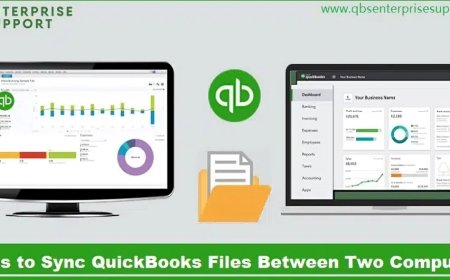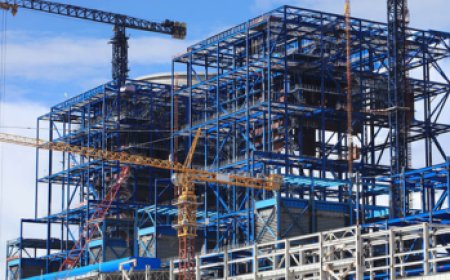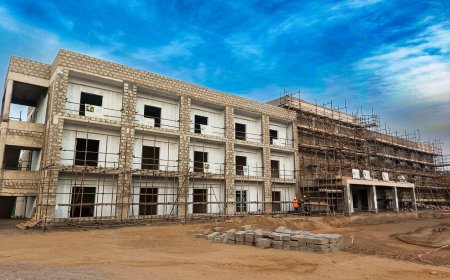Is It Good to Invest in Real Estate During Market Crash?
Discover whether investing in real estate during a market crash is a wise decision. Learn the benefits, risks, and long-term advantages of buying property during downturns.

When the economy takes a downturn and property prices start falling, many people hesitate to make any big financial decisionsespecially when it comes to real estate. A market crash can spark fear, uncertainty, and doubt, making potential investors nervous. However, history shows that economic downturns can also bring unique opportunities for those who understand the dynamics of real estate and are prepared to act strategically.
Understanding What a Market Crash Means
A market crash typically refers to a sharp decline in the stock market or a sudden drop in property values due to economic instability. This can be caused by a number of factors, including inflation, job losses, rising interest rates, or global crises. When this happens, people may rush to sell off their assets, including real estate, resulting in lower prices across the board.
While this may sound alarming, its important to look beyond the panic and focus on the potential benefits hidden within the situation.
Falling Prices Create Buying Opportunities
One of the most compelling reasons to invest during a market crash is the opportunity to purchase property at a lower cost. As property owners look to offload assets quickly, the market becomes more favorable for buyers. Homes, commercial buildings, and land often sell for below their typical market value, giving savvy investors the chance to get more for their money.
Lower prices mean reduced upfront investment, better deals on financing, and higher potential for long-term appreciation once the market stabilizes.
Less Competition From Other Buyers
During a market downturn, many potential buyers pause their search due to fear or financial limitations. This results in less competition in the market. With fewer people making offers on properties, investors have more time to evaluate deals, negotiate better terms, and choose properties that truly fit their goals.
This breathing room allows for more strategic thinking, reduced pressure, and the ability to secure favorable purchase conditions.
Long-Term Appreciation Potential
Real estate is generally considered a long-term investment. While prices may dip during a crash, the market tends to recover over time. Investors who buy during downturns often benefit from long-term appreciation as the economy rebounds and property values increase again.
Buying low and holding on for the long haul can lead to substantial profits in the future. This buy low, sell high principle is especially applicable to real estate during tough economic times.
Rental Income Stability
Unlike stocks, which may not produce income unless sold, real estate can generate consistent rental incomeeven during a market crash. People will always need a place to live, which means that well-located residential properties can still attract tenants.
Additionally, if homeownership becomes more difficult due to tighter lending requirements or job loss, the demand for rental properties often increases. This can provide stable monthly cash flow for investors, even when property values are temporarily down.
Interest Rates and Financing Considerations
Central banks often lower interest rates during economic downturns to stimulate growth. For real estate investors, this can mean cheaper borrowing costs. Lower mortgage rates can significantly reduce monthly payments and improve cash flow.
However, lenders may also tighten their requirements, so having a strong credit profile, stable income, and a good debt-to-income ratio becomes even more important during these times.
Risks to Be Aware Of
While there are advantages to investing during a market crash, its not without risks. The value of a newly purchased property may continue to decline for some time before it starts to appreciate again. This means investors must be prepared to hold onto their properties longer than usual.
Vacancy rates might rise, especially in areas hit hard by job losses or population decline. Maintenance costs and property taxes still need to be paid regardless of market conditions. Its important to have enough cash reserves to weather these potential challenges.
Do Your Research and Stay Local
Before making any investment, research is key. Not all markets react the same way during a crash. Some cities or neighborhoods remain relatively stable due to strong job markets, good schools, or limited housing supply. Focus on areas where demand is likely to rebound quickly or remain steady.
Talk to local experts, study past market trends, and assess the long-term potential of any area before buying. The more informed you are, the better decisions you can make.
Timing the Market vs. Time in the Market
Trying to time the market perfectly is difficulteven for seasoned investors. A more reliable strategy is to focus on time in the market. By holding onto quality properties for several years, investors often see positive returns regardless of short-term fluctuations.
Real estate rewards patience and long-term vision. Those who stay focused on their financial goals and avoid panic-driven decisions are usually the ones who succeed.
Final Thoughts
Investing in real estate during a market crash may seem counterintuitive at first, but for those who are prepared, it can be a highly rewarding move. Lower prices, reduced competition, and long-term growth potential make downturns an attractive time to investif you approach the process with caution, research, and a solid financial plan.
Important Links
New Launch Condos in Singapore: What to Know Before You Book a Unit
Singapore Real Estate Taxation Explained for First-Time Buyers
Understanding Leasehold vs Freehold Properties in Singapore Real Estate
How to Choose the Right Property Agent for Buying Real Estate in Singapore
Discover the Elegance of Living at Thomson View Condo
Thomson View En Bloc Condo Showflat
Should I Rent or Buy a Home in 2025? The Ultimate Decision Guide
Real Estate Investment Tips for Beginners: Your Complete Guide to Property Success
Is Buying a Condo in Singapore Worth It in 2025?
What is the Downpayment for a Condo in Singapore?





































